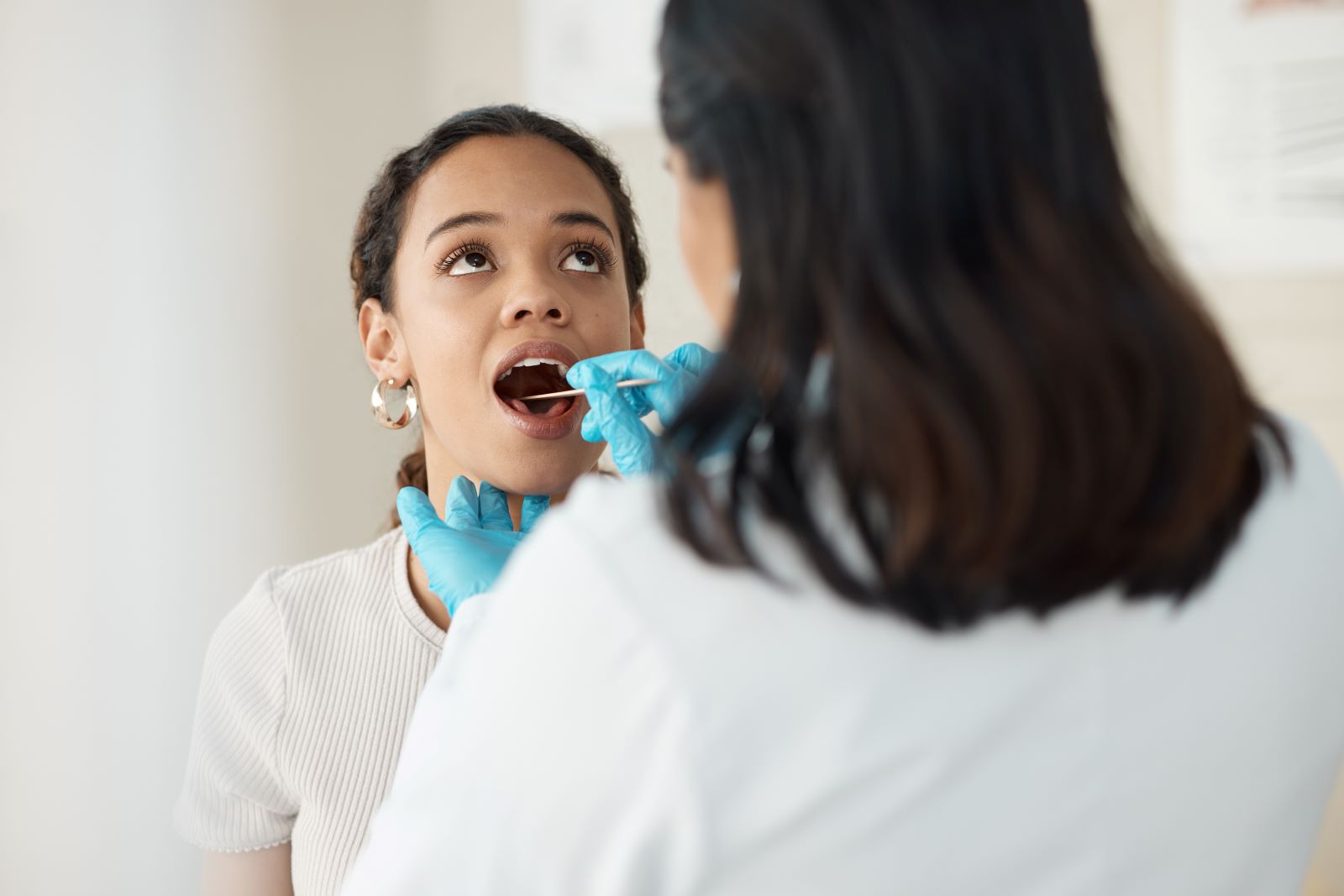Whether you’re a cigarette smoker, tobacco chewer or alcohol drinker, your mouth has likely been exposed to a whole host of cancer-causing substances.
Oral cancers affect the tissue in your tongue, cheeks, palate and jaw, and are the second most common form of head and neck cancer in the U.S.
If you’re at higher risk of oral cancer because of tobacco or alcohol use, identifying signs and symptoms early is key, says Akshay Patel, DO, a head and neck surgical oncologist, microvascular reconstructive surgeon specialist and co-director of the head and neck program with the Hartford Hospital Cancer Institute.
“Commonly, patients present with advanced cancer that has grown large or spread to lymph nodes in the neck, significantly impacting their function and survival,” he says.
Here are six early signs of mouth cancer to be on the look-out for, according to Dr. Patel.
6 early signs and symptoms
According to Dr. Patel, early signs and symptoms of mouth cancer can include:
- Sores, lumps or bumps – painful or painless – on the gums, tongue or inside of the cheeks
- Canker sores that do not heal
- One-sided, radiating ear pain
- Red or white patches of tissue in the mouth
- Pain or trouble eating, drinking, chewing, swallowing or speaking
- Persistent lump in the neck or under the jaw
“If you experience these symptoms for more than two weeks, talk to your primary care provider, dentist, oral surgeon or otolaryngologist (ear, nose and throat specialist),” he says.
> Want more health news? Text StartHere to 85209 to sign up for text alerts
What causes mouth cancer?
The most common cause is chronic use of tobacco, both smoke and smokeless, and alcohol.
“Combining tobacco and heavy alcohol use poses a greater risk of developing mouth cancer than just using either of them independently,” Dr. Patel says.
While uncommon, he adds people who do not have these typical risk factors can also develop oral cancers.
“Other substances – including paan, or betel quid, which is commonly chewed in Southeast Asia – are also associated with development of oral cancer,” he explains. “And, while uncertain, oral cancer is associated with chronic irritation, aging or genetic predisposition.”
> Related: How HPV Caused Martina Navratilova’s Throat Cancer
Treating mouth cancer
“Oral cancer can be life-threatening, but for many patients it is treatable and curable,” he continues.
The first step in treatment for most patients is to remove the cancer surgically and, in some cases, perform reconstruction of the mouth at the same time to restore function for the patient, he adds.
Some patients might also benefit from radiation treatment and chemotherapy to cure them of oral cancer after surgery.



